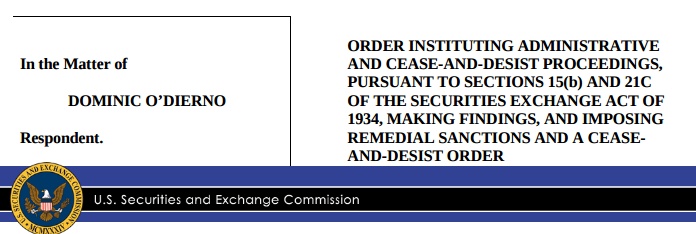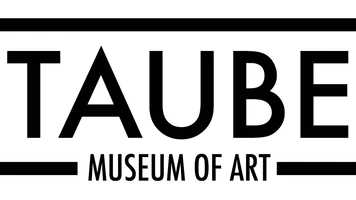Dominic O’Dierno, Asset Manager for Cypress Development, LLC and signatory to the MAGIC Fund application for an additional $2.5 million in funding for the City of Minot’s embattled downtown parking garages, is presently under sanctions by the U.S. Securities and Exchange Commission for his involvement in an Oregon-based Ponzi scheme.
An S.E.C. Administrative Proceeding from December 6, 2012, that can be read in full here and below based its sanctions on the following findings:
Background
3. On September 20, 2012, the Commission filed a lawsuit in federal district court for the District of Oregon against Yusaf Jawed, GAM, and Holdings, among others, for perpetrating a long-running Ponzi scheme that raised over $37 million from more than 100 investors in the Pacific Northwest and across the country. In its complaint, the Commission alleged that Jawed used false marketing materials that boasted double-digit returns to lure people to invest their money into several hedge funds he managed. In reality, he invested very little of the $37 million and, instead, used the money to pay back other investors, to fund his lifestyle, and to pay for the operations of the entities he controlled. The Commission further alleged that Jawed created phony assets, sent bogus account statements to investors, and manufactured a sham buyout of the funds to make investors believe their hedge fund interests would soon be redeemed. See SEC v. Jawed, et al., Civ. Action No. 12-01696 (D. Oregon, Sep. 20, 2012).
O’Dierno’s Conduct
4. Jawed retained O’Dierno as an independent consultant to help him raise money for his purported funds. From 2005 through 2008, O’Dierno placed seven investors, who invested about $2.3 million in the Grifphon funds.
5. While acting as a broker, O’Dierno went beyond identifying potential investors who might be interested in purchasing interests in the Grifphon funds. For example, O’Dierno served as the point of contact between certain investors and the Grifphon funds. O’Dierno answered investor questions about the funds, including repeating the statements made by Jawed about Grifphon funds’ investment strategy and the types of investments made, and provided Grifphon fund marketing materials to investors and potential investors.
6. During the relevant period, Jawed paid O’Dierno a percentage of any investment made by any investor for whom O’Dierno served as a broker. Jawed paid O’Dierno approximately $118,770 in transaction-based compensation.
7. In early 2011, Jawed asked O’Dierno to pay for certain of Grifphon’s expenses. Jawed claimed that a third-party would soon purchase the assets of the Grifphon funds and that the money was necessary to keep Grifphon funds afloat. O’Dierno agreed to pay for those expenses. From March through June 2011, O’Dierno paid, from his own resources, $82,728 for the purported expenses of the Grifphon funds.
Violations
9. Section 15(a) of the Exchange Act makes it unlawful for any broker or dealer to use the means of interstate commerce to effect any transactions in, or to induce or attempt to induce the purchase or sale of, any security unless such broker or dealer is registered with the Commission. Section 3(a)(4) of the Exchange Act defines as “broker” as any person, other than a bank, “engaged in the business of effecting transaction in securities for the account of others.”
10. Based on the conduct described above, O’Dierno acted as a broker without being registered or associated with a registered broker or dealer.
11. As a result, O’Dierno willfully violated Section 15(a) of the Exchange Act.
A willful violation of the securities laws means merely “‘that the person charged with the duty knows what he is doing.’” Wonsover v. SEC, 205 F.3d 408, 414 (D.C. Cir. 2000) (quoting Hughes v. SEC, 174 F.2d 969, 977 (D.C. Cir. 1949)). There is no requirement that the actor “‘also be aware that he is violating one of the Rules or Acts.’” Id. (quoting Gearhart & Otis, Inc. v. SEC, 348 F.2d 798, 803 (D.C. Cir. 1965)).
A 2012 report from Brent Hunsberger writing for Oregon Live.com provides more background on O’Dierno’s involvement:
O’Dierno, Persad and Daniels all agreed to settle the charges against them. None was charged with having knowledge of or aiding in Jawed’s alleged fraud.
All three previously held securities licenses and worked for registered broker-dealers. But none was registered when they began raising money for Jawed, the SEC says.
They answered questions about the funds, repeated assertions Jawed made and circulated marketing materials. The SEC now says those assertions and materials contained false and inflated statements about the returns and conditions of Jawed’s funds.
“If you engage in this type of selling activity, you need to be registered as a broker-dealer,” said Erin Schneider, assistant regional director with the SEC’s San Francisco office.
O’Dierno, 45, has agreed to pay $45,600 in penalties, Schneider said. From 2005 to 2008, O’Dierno persuaded seven investors to place a combined $2.3 million with Jawed, the SEC said. Jawed paid him $118,700 in commissions.
Last year, O’Dierno paid Jawed $82,700 when Jawed claimed the money would help a third party buy Grifphon’s assets, the SEC alleged. Investigators have since alleged that buyout was a sham.
When contacted for confirmation last week that the Dominic O’Dierno mentioned in the above reports was indeed the same Dominic O’Dierno presently acting on behalf of the applicant Steve Larson and Cypress Development, LLC, Mr. O’Dierno offered the following comments:
Dominic O'Dierno on his involvement in Grifphon Asset Management, an alleged $37 million Ponzi scheme.

Dominic O'Dierno, Asset Manager, Cypress Development
A friend of mine was a CFO of an entity that was doing some fund raising and she asked me for some referrals, which I gave — this was about 10-12 years ago. And they were paying referral fees back then which was, you know, essentially approved by their legal counsel and everything else, and so I didn’t look into it deeper than I should have, which was my mistake, and what happened was — down the road — 8 years, 9 years later, when that company had some financial difficulties, the SEC looked into, you know, the situation, and there were three people that had made referrals to them. And it wasn’t a legal issue, it was a rule where if you had been a previously licensed securities broker — which I had been 20 years before — you were supposed to be licensed if you got paid a referral fee. So, it was essentially a rule that was broken that nobody at the time knew about, and they [S.E.C.] went retro on the rule. And so there were three folks — I was included — that was found to have broken the rule. So, I paid restitution and that was it. So, it was a situation where it wasn’t a law, there was no criminal activity, I was found of no wrong doing, I was the victim actually myself, I was an investor in the program and lost money. And so it was just a big negative thing, and it was a learning lesson for sure. But I didn’t do anything other than refer some good people to an investment that didn’t end up working out. So that’s what that is.
The MAGIC Fund Screening Committee will hear the request for the additional $2.5 million needed to complete the downtown parking garages tomorrow morning, 7:30 a.m. at Minot’s City Hall.



